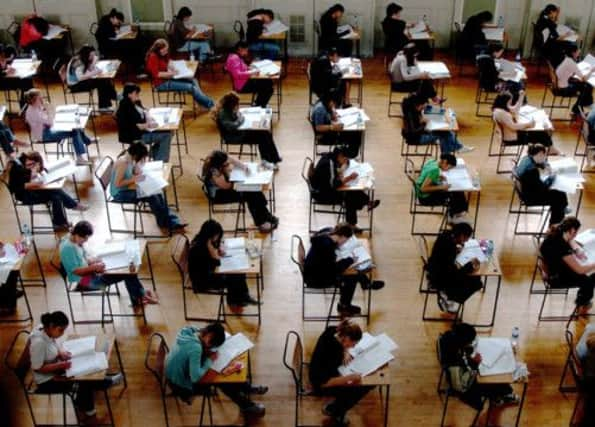Scots parents face £30 fine if children miss exams


City of Edinburgh Council’s examination presentation policy says parents may be asked to pay the cost of fees where students fail to attend for “no good reason”.
Parents were unaware of the rule until receiving a letter from the headteacher of James Gillespie’s High School, one of the city’s leading state schools. Donald Macdonald wrote to parents shortly before the start of this year’s exam season, saying: “We request your support in ensuring that your child turns up, on time, for all exams.
Advertisement
Hide AdAdvertisement
Hide Ad“If your son/daughter must miss an exam due to ill health, please contact us by phone immediately on the morning of the exam and then again in writing as soon as possible afterwards. Please note that an appeal to the SQA … will not be possible without a doctor’s line.”
Local authorities pay the SQA (Scottish Qualifications Authority) based on the number of candidates sitting an exam. The cost of one pupil for one exam is thought to be about £30.
The exams policy is part of the move by schools across Scotland to clamp down on unexplained absences. Alan McKenzie, the acting general secretary of the Scottish Secondary Teachers’ Association, said fining parents was “draconian”, but said schools often spent a lot of time chasing up pupils who had failed to show for exams.
“In the old days, a lot of kids would miss the exam,” he said. “Now, headteachers often spend the morning chasing kids and winkling them out of bed. Were they not to do that, I suspect a fairly significant number would not turn up.
“There’s a lot of pressure on schools to chase kids up – they tend to operate on the basis of taking responsibility for young people and worrying about them. I think that’s wrong. I don’t believe it’s appropriate for senior managers to devote their time to acting as alarm clocks for pupils, when they should be helping deliver the curriculum.”
Ken Cunningham, general secretary of School Leaders Scotland, which represents headteachers, said schools needed to approach exams in the same way as truancy.
“Heads spend an inordinate amount of time in certain schools in trying to make sure youngsters turn up,” he said. “In days gone by, I actually went to their homes to make sure they were in the exam. It’s hugely expensive to run exams and everyone is on a tight budget. I’m not sure all parents fully understand the cost of these exams and raising awareness is a good thing.
“More power to Edinburgh’s elbow on raising the ante, but it must be in the context of taking cognisance of individual circumstances. It’s another bit in the armoury to get the best for young people, and for that Edinburgh should be applauded.”
Advertisement
Hide AdAdvertisement
Hide AdOther local authorities have not followed Edinburgh’s lead, but the city’s council now seems to be backtracking. A spokeswoman said: “We are currently reviewing this policy.”
Thousands of pupils across Scotland are currently sitting Standard Grades, Intermediates and Highers before the new National Qualifications – part of Curriculum for Excellence – are introduced next year.
Two parents were convicted of allowing their children to skip school in Edinburgh earlier this year. A teenage boy’s father and the mother of a 14-year-old girl both allowed the children to miss classes and were taken to court by the city council.
Teaching leaders said they hoped the prosecutions would send out a stark message to parents, while city council chiefs said they had been forced to take the parents to court as a “last resort”.